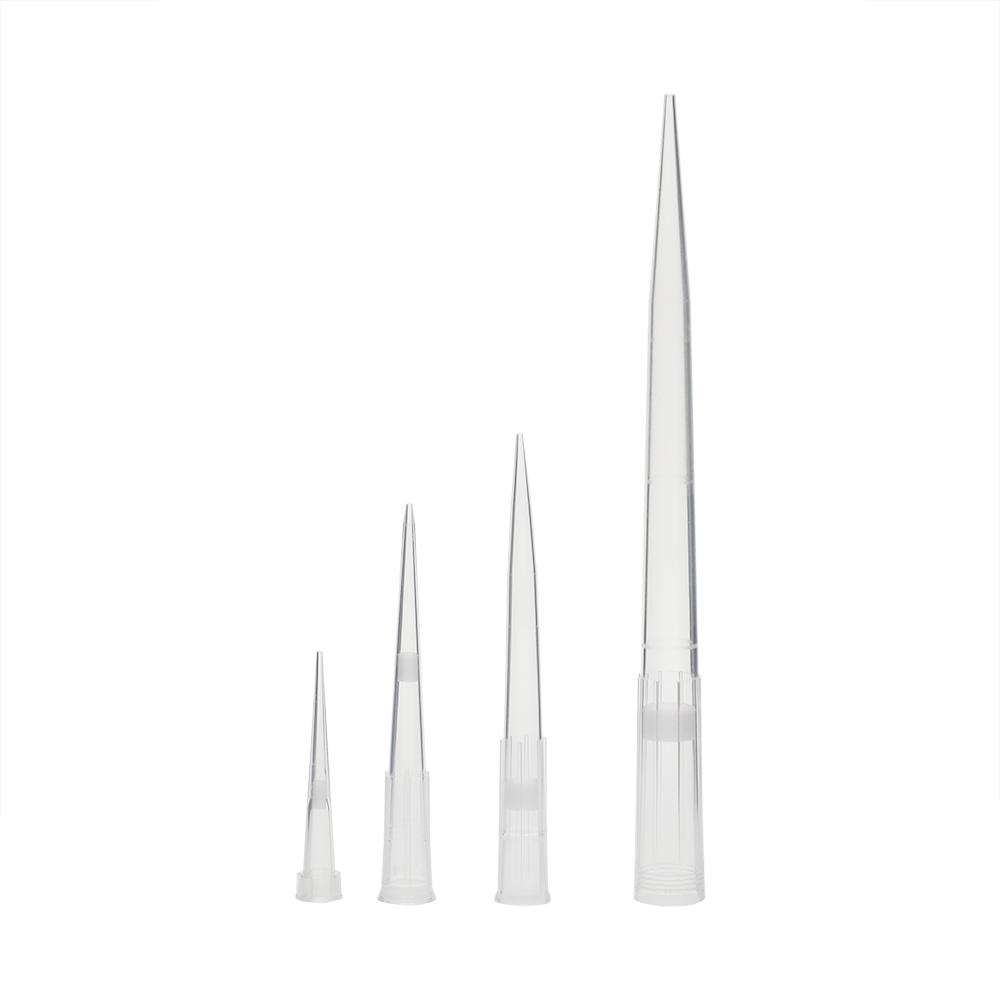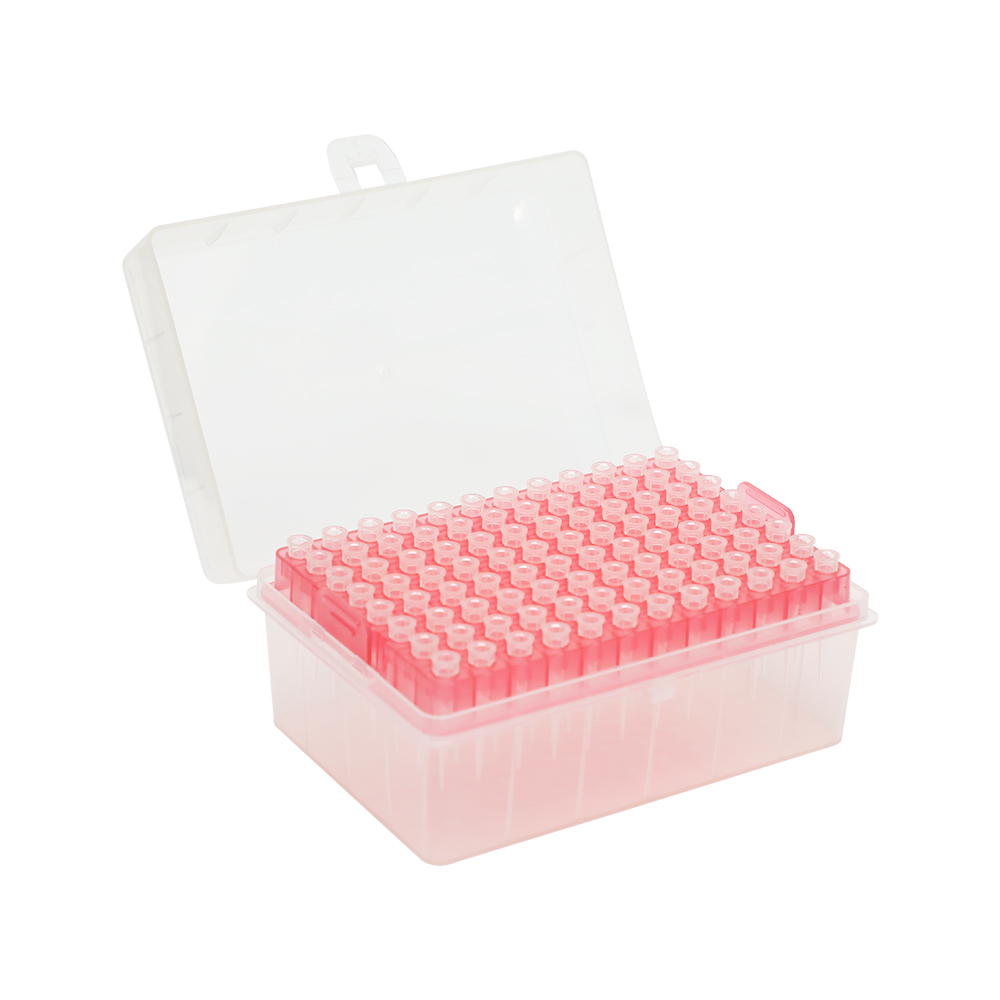Introduction
In the realm of laboratory work, precision and purity are paramount. This article delves into the nuanced differences between Pipette Filter Tips (0.1-10 µl) and conventional pipette tips, elucidating their unique features, functionalities, and the specific advantages they offer in laboratory settings.

Characteristics of Pipette Filter Tips (0.1-10 µl)
- Filtration Mechanism
Pipette Filter Tips employ a specialized filtration system designed to prevent sample contamination and aerosol formation during pipetting. These filters, often made from materials like polyethylene or polypropylene, ensure the purity of transferred liquids.
- Material Composition
Comprising high-quality plastics, these filter tips are manufactured to stringent standards, offering features such as hydrophobic filters to repel liquids and prevent sample carryover between aspirations.
- Volume Range and Precision
Covering a volume range of 0.1-10 µl, these filter tips are engineered for utmost precision and accuracy in liquid handling. Their design and construction enable consistent and precise delivery of minute volumes, critical in sensitive experiments.
Differences from Regular Pipette Tips
- Contamination Prevention
The key divergence lies in their contamination prevention capabilities. Filter tips, with their built-in filtration mechanisms, significantly reduce the risk of sample contamination, ensuring sample integrity and purity during pipetting tasks.
- Aerosol Reduction
Unlike regular tips, filter tips notably minimize aerosol formation, especially while dispensing volatile or infectious substances. This reduction mitigates potential health hazards and maintains a cleaner laboratory environment.
- Application Specificity
Filter tips find their niche in scenarios where sample purity and precision are non-negotiable. They excel in applications demanding high accuracy and minimal contamination, distinguishing them from regular tips.
Significance in Laboratory Work
Pipette Filter Tips within the 0.1-10 µl range hold immense significance in various laboratory settings due to their distinctive features and functionalities, contributing significantly to precision, accuracy, and contamination control. The importance of these filter tips can be highlighted in the following aspects:
- Criticality of Precision in Pipetting
In laboratory experiments, particularly in molecular biology, biochemistry, and pharmaceutical research, precision in liquid handling is crucial. The accuracy of even minute volumes (0.1-10 µl) can significantly impact experimental outcomes. Pipette Filter Tips are engineered with precision in mind, ensuring consistent and accurate dispensing of these small volumes. Their reliability in delivering precise quantities of reagents or samples minimizes variability and enhances the reproducibility of results in sensitive assays like PCR, qPCR, and sequencing.
- Preservation of Sample Integrity and Contamination Control
Maintaining the purity and integrity of samples or reagents is fundamental in numerous laboratory procedures. The built-in filtration system of these tips acts as a protective barrier against contamination, preventing aerosol and liquid carryover. This feature is particularly crucial when working with precious or sensitive substances such as DNA, RNA, enzymes, or other biomolecules. By mitigating the risk of cross-contamination, filter tips ensure the reliability and accuracy of experimental data, especially in assays that demand high fidelity and minimal contamination.
- Enhanced Experimental Reproducibility and Reliability
In research, reproducibility is a hallmark of scientific validity. The use of Pipette Filter Tips contributes significantly to achieving consistent and reliable results across experiments. By minimizing the risk of contamination and providing precise volume delivery, these filter tips assist researchers in conducting experiments with high reproducibility. The consistency ensured by filter tips aids in obtaining reliable data, reducing experimental errors, and facilitating data comparison and verification across different trials or laboratories.
- Safe Handling of Volatile or Hazardous Substances
When working with volatile or hazardous substances, safety is of utmost concern. Pipette Filter Tips aid in reducing aerosol formation, mitigating potential health risks associated with inhaling aerosolized or volatile substances. This feature not only ensures the safety of laboratory personnel but also maintains a clean working environment, enhancing overall laboratory safety protocols.
Contamination Control and Sample Integrity
Sample purity is vital in molecular biology, genetics, and diagnostic assays. Filter tips' ability to prevent contamination safeguards experimental integrity, enhancing the reliability of research findings.
Use Cases and Suitable Applications
- Laboratories and Research Fields
Laboratories conducting sensitive assays, PCR amplification, or cell culture work greatly benefit from filter tip usage. Biotechnology, pharmaceutical, and clinical laboratories also favor their application.
- Compatibility with Various Substances
Filter tips are well-suited for a wide array of substances, particularly those prone to contamination or degradation. They ensure the integrity of DNA, RNA, enzymes, and sensitive reagents, enhancing experimental accuracy.
Conclusion
In conclusion, Pipette Filter Tips (0.1-10 µl) epitomize precision and contamination prevention in laboratory settings. Their distinct features, including filtration mechanisms, superior accuracy, and minimized contamination risks, set them apart from regular pipette tips, making them indispensable tools for accurate and reliable liquid handling in diverse scientific applications.
Related Products





